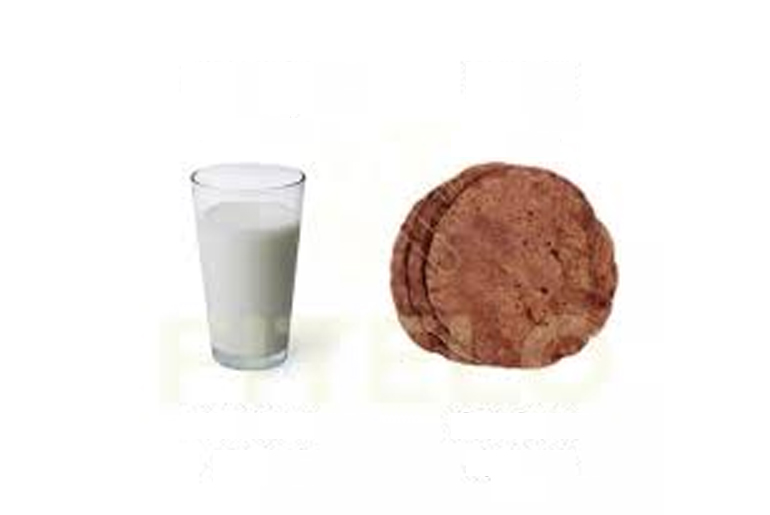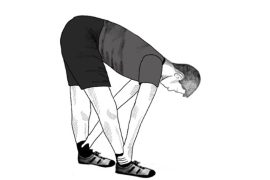Calcium is an essential mineral crucial for maintaining strong bones and teeth, supporting muscle function, nerve transmission, and blood clotting. It plays a vital role in various bodily functions, including regulating heart rhythm and muscle contraction. The body stores most of its calcium in bones and teeth, and adequate intake through diet or supplements is important for bone health, especially during periods of growth, pregnancy, and aging. Dairy products, leafy greens, fortified foods, and certain fish are excellent dietary sources of calcium. A deficiency in calcium can lead to weakened bones, increasing the risk of fractures and conditions like osteoporosis.
When comparing milk and ragi for calcium content, ragi emerges as the clear winner. Ragi (finger millet) contains approximately 344 mg of calcium per 100 grams, while milk provides around 120 mg of calcium per 100 ml. This makes ragi nearly three times richer in calcium than milk. Calcium is essential for strong bones, teeth, and proper muscle function. While milk offers calcium in an easily absorbable form due to its vitamin D content, ragi provides a plant-based calcium source, making it ideal for individuals who are lactose intolerant or prefer non-dairy options.
Nutrition in Milk
Milk is a highly nutritious animal-based product, providing a balanced combination of proteins, fats, carbohydrates, vitamins, and minerals. Per 100 ml, milk contains about 3.4 g of protein, 4.8 g of carbohydrates, and 1-3 g of fats (depending on whether it’s full-fat or skim milk). It is a rich source of calcium (120 mg), phosphorus (100 mg), and potassium (150 mg), which are essential for bone and heart health. Milk also contains vitamin B12 for brain function and vitamin D to aid calcium absorption. These nutrients make milk a staple food for growth, muscle repair, and hydration, particularly for growing children, athletes, and older adults.
Nutrition in Ragi
Ragi (finger millet) is a nutrient-dense whole grain that stands out for its high calcium and dietary fiber content. Per 100 grams, ragi provides approximately 344 mg of calcium, 72-76 g of carbohydrates, 7-8 g of protein, and 11-18 g of dietary fiber. It is also an excellent source of iron (3-4 mg), magnesium (137 mg), potassium (410 mg), and phosphorus (283 mg). These minerals contribute to improved bone strength, heart health, and anemia prevention. Unlike milk, ragi is gluten-free and suitable for individuals with lactose intolerance. Its low glycemic index helps manage blood sugar levels, making it an ideal food for diabetics and those aiming for weight loss.
Comparison of Milk and Ragi
Milk and ragi offer unique benefits, but their nutritional profiles differ:
- Calcium: Ragi (344 mg/100 g) contains nearly three times the calcium of milk (120 mg/100 ml).
- Protein: Milk provides high-quality animal protein (3.4 g/100 ml), while ragi offers plant-based protein (7-8 g/100 g).
- Fiber: Ragi is rich in fiber (11-18 g/100 g), while milk has none.
- Iron: Ragi is a good source of iron (~3-4 mg), while milk has negligible iron.
- Digestibility: Milk is easily digestible, while ragi’s high fiber makes digestion slower but more satisfying.
- Glycemic Index: Ragi has a low glycemic index, which is beneficial for diabetics, whereas milk has a moderate glycemic index.
While milk excels in protein and easily absorbable calcium, ragi is superior in plant-based calcium, fiber, and iron, making it beneficial for those with specific dietary needs.
Health Benefits of Milk
Milk offers numerous health benefits due to its nutrient-dense composition:
- Strong Bones and Teeth: Rich in calcium and vitamin D, milk strengthens bones and prevents osteoporosis.
- Muscle Growth and Repair: Its protein content supports muscle recovery and growth, particularly for athletes and children.
- Heart Health: Potassium in milk helps lower blood pressure and reduce the risk of cardiovascular diseases.
- Weight Management: Low-fat milk provides essential nutrients without excess calories, aiding in weight loss.
- Boosts Immunity: Vitamins and minerals like vitamin A and zinc strengthen the immune system.
- Hydration: Milk replenishes electrolytes and is an excellent post-workout drink.
- Promotes Sleep: Drinking warm milk at night has a calming effect, improving sleep quality.
Health Benefits of Ragi
Ragi is a powerhouse of nutrients and provides several health benefits:
- Bone Health: Ragi’s high calcium content strengthens bones and teeth, making it particularly beneficial for children and elderly individuals.
- Manages Diabetes: With its low glycemic index and high fiber content, ragi regulates blood sugar levels.
- Weight Loss: Ragi’s high fiber content promotes satiety, curbs hunger cravings, and aids in weight management.
- Prevents Anemia: Its iron content boosts hemoglobin levels and prevents iron-deficiency anemia, especially in vegetarians.
- Improves Heart Health: Magnesium and potassium in ragi help control blood pressure and reduce cholesterol levels.
- Aids Digestion: The dietary fiber in ragi supports digestion, prevents constipation, and promotes gut health.
- Reduces Stress: Amino acids like tryptophan calm the nervous system, reducing stress and anxiety.
- Delays Aging: Antioxidants in ragi fight oxidative stress, promoting healthy, youthful skin.
Health benefits of milk and ragi
Both milk and ragi are nutritional powerhouses with distinct advantages. Milk is a rich source of high-quality protein, calcium, and vitamin D, making it an essential food for growth, muscle repair, and hydration. It is ideal for those seeking strong bones, improved immunity, and better sleep.
On the other hand, ragi is a plant-based superfood with superior calcium, fiber, and iron content. It is particularly beneficial for diabetics, vegetarians, and those aiming for weight loss, anemia prevention, and digestive health.
Together, milk and ragi complement each other, providing a balanced mix of nutrients that promote bone health, overall vitality, and disease prevention. Whether consumed individually or combined (e.g., ragi malt with milk), they offer holistic nourishment for people of all ages.
Disclaimer:
The information contained in this article is for educational and informational purposes only and is not intended as a health advice. We would ask you to consult a qualified professional or medical expert to gain additional knowledge before you choose to consume any product or perform any exercise.






